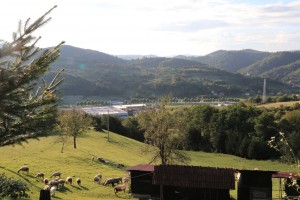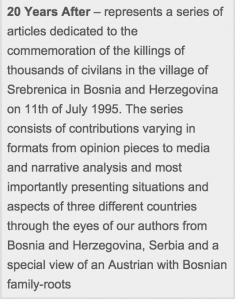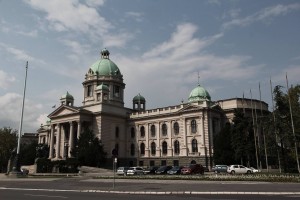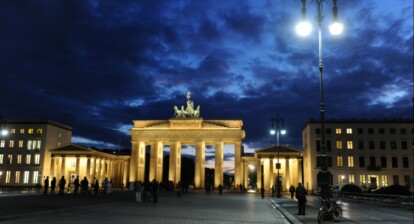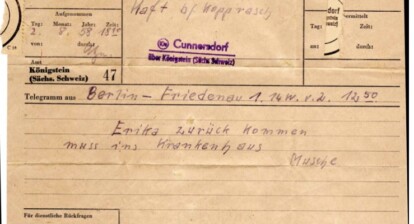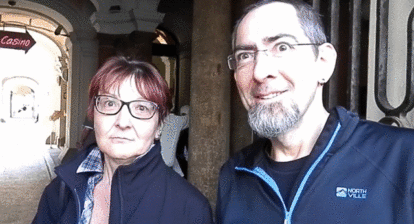How does Serbia reflect on Srebrenica and its commemoration? What is the public attitude and how are the leading politicians using Srebrenica in their political calculations nowadays? After 20 years of no clear act of reconciliation, it is though clear that Serbian as well as Bosnian political leaders need to reconsider their positions, attitudes and approaches.
The year 2015 is marked with commemoration of the twentieth anniversary of the Srebrenica massacre. Looking at some aspects of the Srebrenica narrative from the standpoint of the Serbian media and public opinion, it can be noticed that there is no unified agreement upon how Serbia should remember this crime. Srebrenica massacre is one of those events, which continue to cause controversy and disagreement among all the regions of Balkan, and definitely one of the reasons why ex-Yugoslav nations have a hard time achieving reconciliation.
Indecisions and Delays are the Parents of Failure
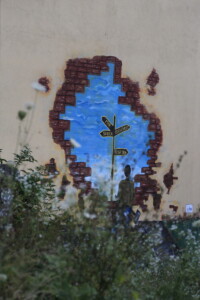
What connects majority of people in the restless Balkan are wishes for a better future, success, happiness and peace (photo: Benjamin Hennig)
In the light of current events like United Kingdom’s (UK) Srebrenica-resolution proposal and arrest of Naser Oric, the commemoration of Srebrenica massacre is currently a hot and controversial topic in Serbia. Observing the government’s attitude towards anniversary and media reports, one can easily agree with Serbian politician and psychologist Zarko Korac: “Belgrade’s policy – when it comes to the resolution on Srebrenica proposed by the United Kingdom – is an ostrich policy, meaning drilling its head in the sand and pretending that nothing is happening /…/ So it is the best to avoid talking about it, and mentioning it in the media, because it was thought that no matter what is said, it will be bad for Serbia in the end.”
Serbian Authorities Grapple with Srebrenica Commemoration
Reading Serbian media reports in months before the commemoration the overall impression is that there is not even the minimum consensus in the circles of Serbian authorities. Consequently, the question of what to do and whether to attend Srebrenica-commemoration or not, remains open. Balance between satisfying the national interest and the pressure of Serbian interest to be taken into consideration for membership in the European Union (EU), created policy of indecision and ambiguous views.
In his attempt to calm the public, Serbian prime minister finally stated that he cannot support UK’s resolution on Srebrenica, but that he is “ready to bow my head and pay tribute to the innocent victims of Srebrenica so that the Serbs in the world could walk with head held high… We will not hide and pretend not to see or try to relativize the crime. This is a big and terrible crime. So we should work for reconciliation and not for additional destabilization /…/”
Between Denial and Acceptance of Responsibility
The easiest way to see the public attitude towards the Srebrenica crime and its commemoration is to visit social networks like Facebook or Twitter. The useful tool is also to follow comments section below every major headline about Srebrenica. These online comments are distinctively different in narration and openness towards Srebrenica. On news portals hate speech is restricted, so most comments are about commemoration, and about the question whether Srebrenica can be described as genocide or not.
Majority of commentators agree that Serbs are responsible and should pay respect to victims and that the Serbian prime minister should attend the commemoration. In addition, most commentators also agree that Srebrenica was a massacre, but not genocide. One comment particularly summarizes them all: “I judge that crime and I am ashamed of what was done in my name. Srebrenica was a horrific crime, but the number of victims is manipulated, the role of UN and western propaganda was enormous, and double standards are at place: What about our victims, what about Jasenovac, Jadovno, Kravica, Gorazde, was that genocide, and when will our neighbors recognize crimes against Serbs?“
Social Media and Srebrenica
The uniqueness of social networks and lack of restrictions in speech is reflected in the variety of opinions. If some public figure or a web page opens a discussion on the topic of Srebrenica, you are able to witness a lot of nationalistic charge and stances, arguments and contra-arguments and shares of videos and articles that are in favor of one side in the conflict.
While scrolling through the sea of comments and responses, you notice that everyone is fighting everyone – what they have in common is that nobody listens each other. The least spotted are the ones who call for reconciliation and “burial of war hatches”, and the first impression is that “much water will flow through Danube before the Balkan nations reconciliate”. One thing must be taken into consideration: the ones with most radical views, are usually the loudest and the most visible ones, so any impression you get by reading social media exclusively can be very deceiving.
Voices of Reconciliation Amidst Dissonance
Along with radical opinions and discussions, there is a quiet and less visible side of public opinion, about which you rarely hear in the daily news. These are different initiatives born and started on social networks calling for reconciliation and peaceful remembrance of this event. One such initiative is a project called Seven Thousand (#sedamhiljada) started by a Serbian journalist. The aim of the initiative is that on 11th of July seven thousand people lie down in front of the national parliament and in that way pay tribute to Srebrenica victims. There are also initiatives to establish a Serbian Day of remembrance of Srebrenica victims. Such initiatives are a good indicator that there is also the “other” Serbia that is accepting its responsibility and dealing with it`s own dark past.
There is no unified position towards the Srebrenica remembrance, though most people in Serbia do not deny the crime, but condemn it. However, considering the fact that many crimes against Serbs both in the wars in nineties and during the Second World War, were not adequately punished nor remembered it is understandable why there is so much disappointment among the Serbs when they are marked as the main and only villains.
As long as this disappointment prevails, there will be a reluctance to accept our own mistakes and crimes. Speaking of reconciliation also seems unmanageable when you consider a tendency of Bosnian politicians to monopolize the victim status and failing to do much to calm down the vengeful feelings. It is evident that there is an effort but that little has been done in order to overcome animosities between Serbs and Bosniaks. Twenty years after Srebrenica it is time for both sides to consider which path to follow.


